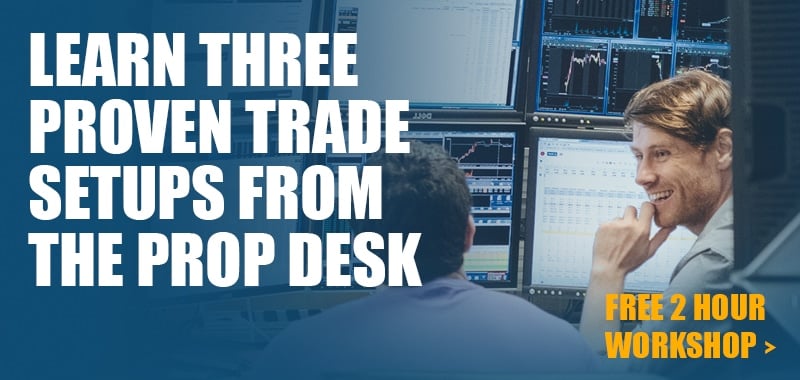Good afternoon Bella!
I’ve been crunching my trading stats lately, and see lots of positives but also some things that clearly need improving. A positive is my stats off the open, 9:30-9:50. Those are very strong. However, what is severely lacking is my trading performance from 1:30-4pm. I know you’ve talked about how within the trading day, there are three separate “businesses”: the open, midday, and the close. I’m looking for some advice/input on how I can turn around my performance from 1:30-4pm so I can continue to develop and take the steps I need to take to become “Your Best Trader”.
Rodney
@MikeBellafiore
What types of trades are you making midday?Rodney responds:
My main focus off the open is opening drive type plays, stocks that are holding their opening print. My risk is definable, and they have a daily chart setup as well. Midday I generally look for opportunities where stuff is moving on volume out of an intraday pattern, again, preferably with a daily chart set. I tend to have way more confidence in a trade if I like the daily chart. One of my potential challenges could be subconscious. With opening drives, those moves happen quick and they happen fast, which makes them fall into that instant gratification category. Midday trades are perhaps slower to develop, though not always. It’s from that information I’ve realized my trades2hold need a lot of improving!
Rodney
@mikebellafiore
If you are a good Opening Drive trader you enjoy momentum trading and scalping. It is unusual with algorithmic trading programs to be able to trade these setups consistently profitably. It appears you may have the skill to do so.
You might first start making a PlayBook of midday momentum and scalp trades that make the most sense to you. The answer may be for you to be more selective with your momentum and scalp midday trades. And not that you should stay away from them and focus on Trades2Hold intraday. You could consider adding IPO trading as a strategy. Find some high beta stocks to scalp. First try and find more of the types of trades you prefer rather than trying to adapt to trades that may not fit your personality and trading brain. Build from your strengths. Let Rodney be Rodney.
Related blog posts:
Triggering Elite Performance
Part of Being a Successful Trader
You can be better tomorrow than you are today!
Mike Bellafiore



2 Comments on “Let Rodney Be Rodney”
Bella, really appreciate that feedback! Great stuff…I have invested some mental energy in trying to adapt to certain trades that I just don’t seem to trade that well, with the intent of developing my playbook further. But maybe trades2hold just don’t suit me very much and I should put my focus elsewhere. It is my style/personality to trade something that is working now, versus trading something that “needs time”. I have thought this was a weakness, but from your feedback rather than try to add a play to my quiver that might not make much sense to me, I am going to look at putting more emphasis on what has worked for me, and try to do it more often, do it with more size, and stay away from trades that are low conviction and on the “feeler” side. Thanks for the input, and would love to hear from anyone else in the comments section on this topic….Rodney
Rodney, here’s my tuppence worth worth.
Since first getting into the trading business I’ve assumed longer term plays T2H would be my thing. Less intense focus, therefore less chance of making bad trades. Now I’m not so sure this is true. It isn’t yet anyway.
I’ve made lots of excuses over time – trading from home, the lack of a good supportive and conducive environment, various distractions and non trading commitments blah blah blah. These are more helpfully understood as limiting factors – just like my £’s trading capital than problems.
Consistently making good short term M2M trades is very hard, I make lots of mistakes (bad trades), but what I’ve found (as was written insightfully elsewhere on the blog http://www.smbtraining.com/blog/how-focusing-on-doing-the-right-thing-helped-this-trader) is that these “mistakes” are often more accurately defined as problems which are not going to disappear just because I shift to longer term time frames.
Inhibiting the temptation to jump at every potential opportunity is such a basic trading skill it needs, IMHO, an awful lot of practice. Short term trading offers me much more practice at seeing and overcoming my particular problems – though really I’d prefer to call them habits.
Recently, what I’ve realised through being more focused on developing a good trading process: keeping a journal, developing a Playbook etc, and basically getting rid of much of the randomness from my trading, is the appearance of a bias against short trades! In the sense that I see more clearly, and have much better success, with patterns that develop around up moves. Seems a bit weird to my “rational” brain, but it’s a fact and it’s best to start with the facts.
Enough Said.
Keep on keepin’ on.